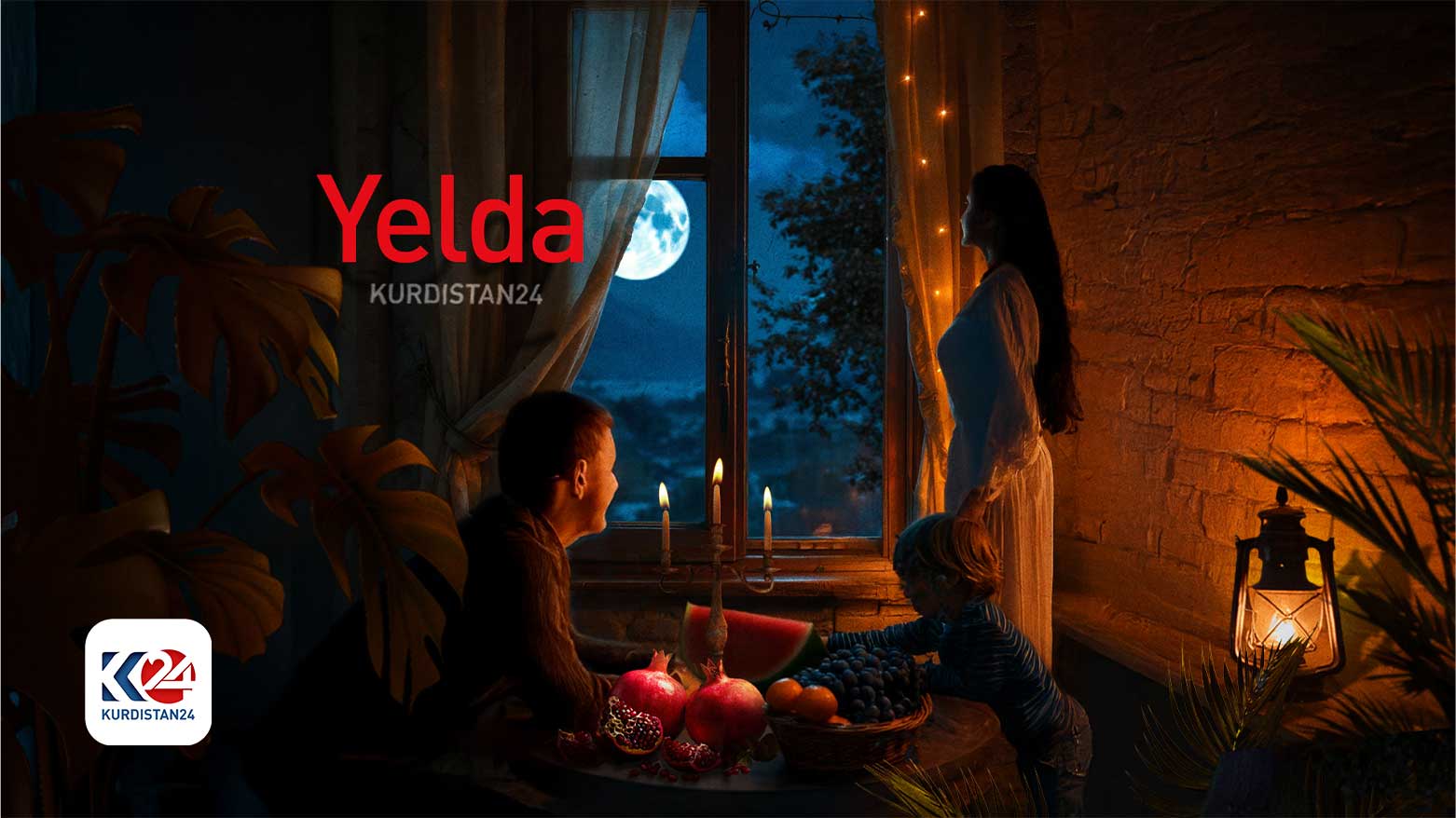Ancient Lights of the Zagros: The Significance of Yelda in Kurdish History
In ancient Kurdish languages, Yelda meant "created light," referring to the birth of Mithra, the sun and light god.

Dec. 20, 2024
ERBIL (Kurdistan24) - The word Yelda comes from Syriac meaning "birth," as in ancient Kurdistan, Yelda night commemorated the birth of the god Mithra, who was born in the foothills of the Zagros Mountains (Place of Sun).
Yelda has Syriac roots, meaning "birth" and "coming to the world," symbolizing the birth of sun and light, or Mithra. Romans called this day "Dies Natalis Solis Invicti" or "The Birth of the Invincible Sun".
Abu Rayhan al-Biruni, the famous Persian-speaking scholar, described it as the "Great Birth" festival, symbolizing the birth of sun and light.
In ancient Kurdish languages, Yelda meant "created light," referring to the birth of Mithra, the sun and light god.
In recent years, it's been celebrated as Yelda Night in Southern Kurdistan. Yelda night (the longest night of the year) falls on the last day of autumn and the first day of winter, corresponding to Dec. 20-21 in the Gregorian calendar and 30 Sermawez/1 Befranbar in the Kurdish calendar.
The nations celebrating Yelda rely on the myth of the sun's birth or renewal.
According to the myth, the sun has lost its strength throughout the year, and its energy-giving power has diminished, but is reborn again - meaning the birth of Mithra in the Zagros Mountains of Kurdistan.
Like other Zagrosian nations' festivals (Kurds being the primary Zagrosian nation), such as Newruz (New = New and Roj = Day, together New Day), Yelda is an ancient tradition reflected in Kurdish culture and literature.
Many citizens, especially in Eastern Kurdistan and Southern Kurdistan Region, gather on this night as an ancient tradition, celebrating with festive spreads and meals.
However, in Northern Kurdistan, celebrating Yelda night is forbidden, like all other Kurdish festivals.
The word Yelda has been so significant that it has found its place in poetry and literature, with Kurdish and Persian poets writing about this night, including the famous Kurdish poet Nali (1800-1856):
Is it Yelda's night, or has darkness descended this eve?
When far from you, my sight has lost its reprieve
My heart, like a deposed ruler, my dear
Yearns for your union's gift to receive this eve
My heart inclines toward your gaze, that's why
From me it runs wild, distant does it leave this eve
With you as the crowned king of those drunk on sight
What care I for Caesar or Emperor this eve?
Have your eyes just wakened, or are they astir?
Are they always thus, or wine-soaked to deceive this eve?
My tears paint the image of your eyes divine
As I mount Mansur's gallows to grieve this eve
Yelda night is special in certain regions including Kurdistan, Iran, Azerbaijan, Afghanistan, Pakistan, and Tajikistan, marking the winter solstice.
It's one of the ancient historical festivals of the Middle East, shared among Indo-Aryan and Mesopotamian nations, particularly Zagrosian nations.
On the last autumn night in the Northern Hemisphere, considered the longest night of the year, nights begin to shorten and days lengthen afterward.
Kurdish and Persian poets have referenced this night. In some Persian regions, people prepare enthusiastically, buying special items and food, with watermelon being particularly significant for people during this night.
Generally, Yelda refers to the first winter night, when darkness covers half the Earth for 14 hours, making it the shortest day of the year. Traditionally, snowfall on this night was considered a sign of a prosperous year.
Zoroastrians would gather, celebrating with food, drink, songs, and dance until dawn, waiting for sunrise.
The feast spread was called "Meyized" by Zoroastrians.
In Mithraic temples, prayers ("Niyad") were offered for light's victory over darkness and Ahriman. People who stayed up celebrating Yelda night would take the first day of winter, or Sun Day, as a holiday.
According to some historical sources, Sun Day was a day of human equality, where kings wore simple white clothes and no one gave orders to others, with all tasks performed voluntarily.
Any bloodshed, including animal slaughter, was forbidden on this day. The holiday also served to prevent any wrongdoing, as according to the Mithraic religion, even the smallest misdeed on the sun's birthday was considered a grave sin.
A brief note about Mithraism, the ancient Kurdish religion:
Mithraism is the original and ancient Kurdish religion, where the god Mithra is the god of gods, covenant, oath, light, and warfare.
It originated in ancient Kurdistan and spread throughout Greater Ancient Kurdistan. Later, it spread through Roman Empire soldiers as an advanced ancient religion throughout Roman territories, becoming the Empire's official religion except in Greece, Egypt, Spain, and Britain, reaching its peak of glory and power.
However, it was defeated by Christianity in 333 CE when Christianity became the Roman Empire's official religion. Mithraic followers faced Roman persecution supported by Christian clergy, but followers of this great and enduring religion continued their struggle.